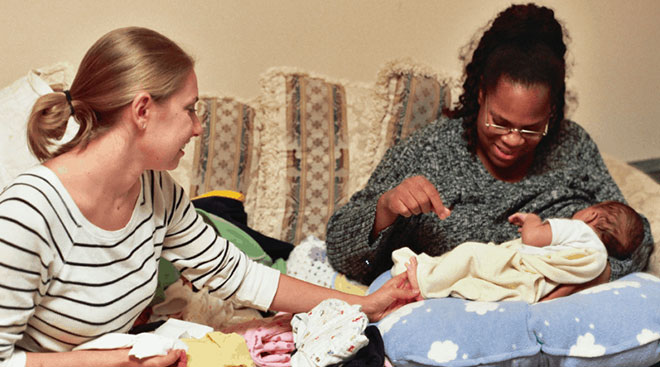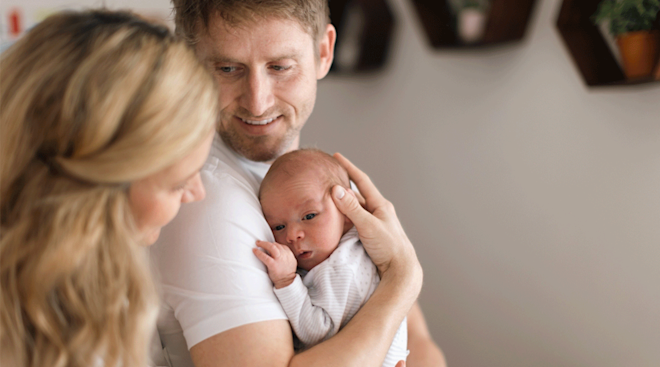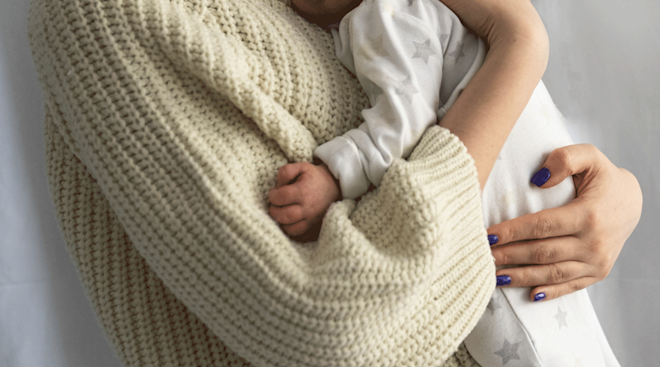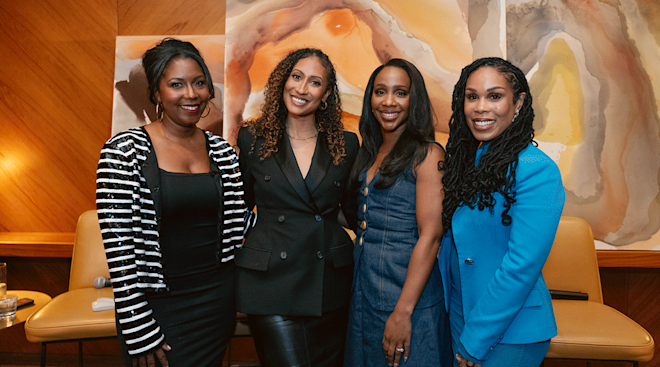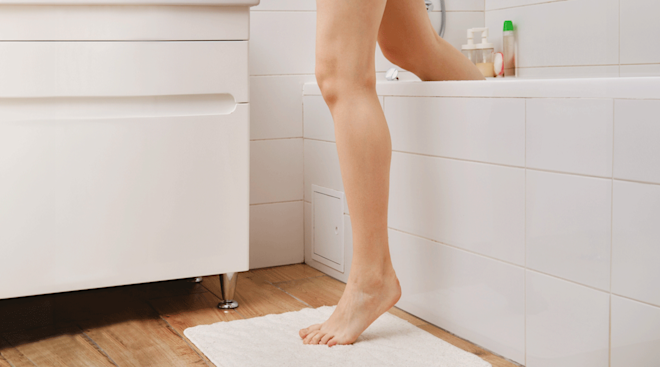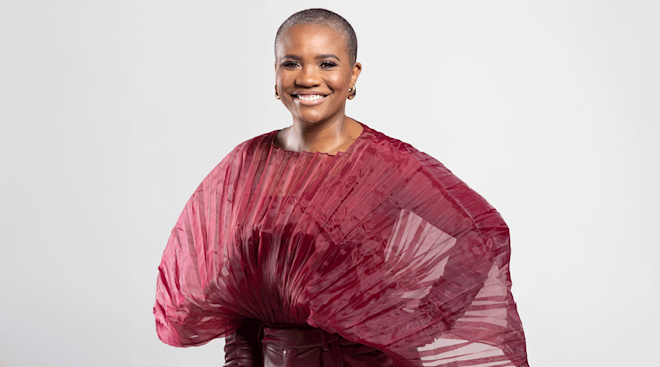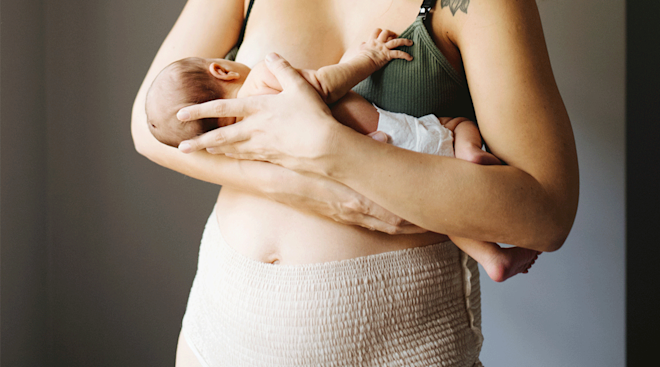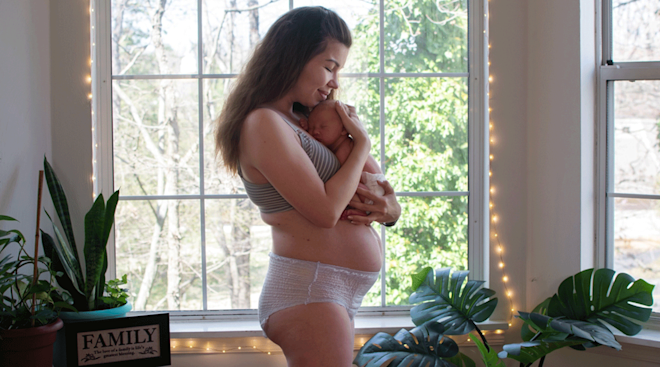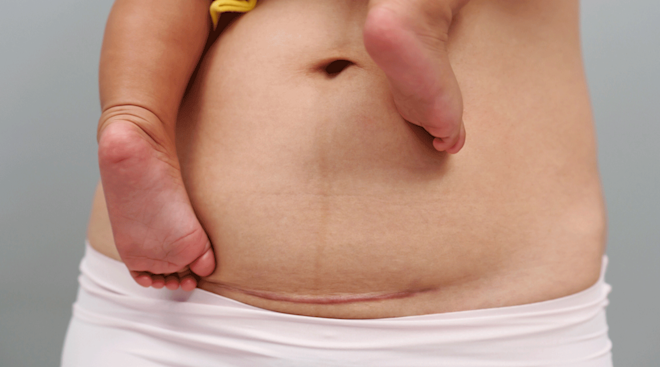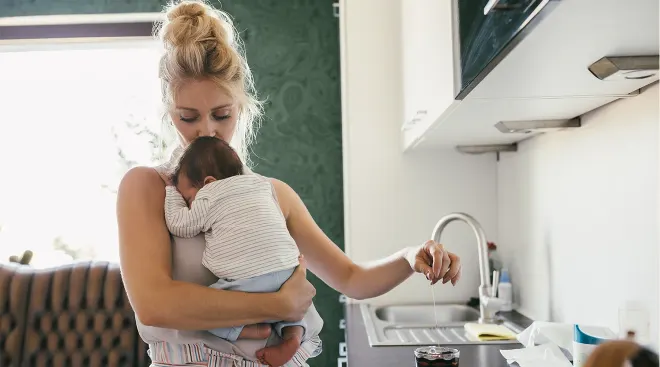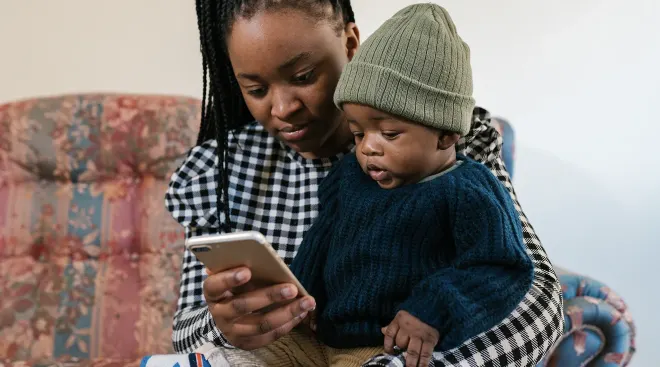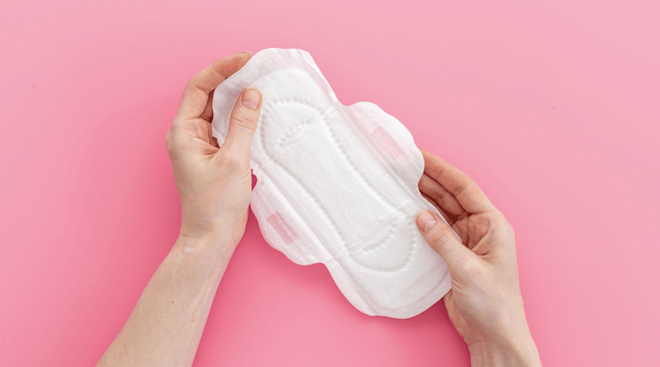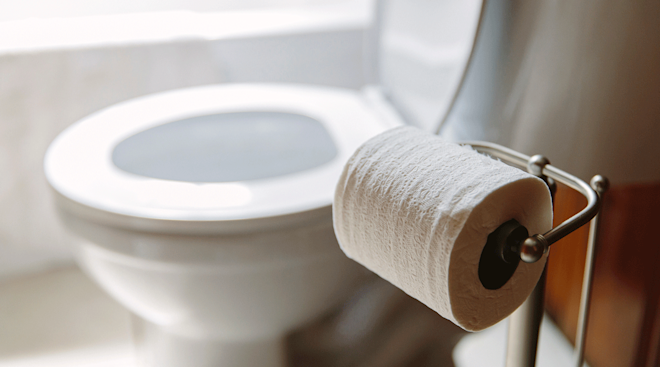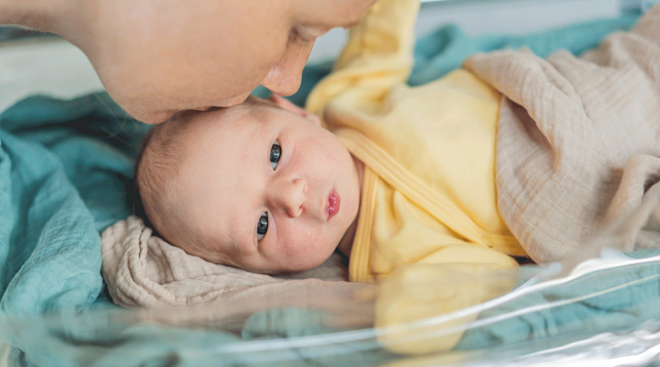How a Postpartum Doula Can Help Ease the Transition to Parenthood
You’ve been waiting for this moment for nine+ months. You’ve prepared the nursery, chosen a name and purchased all the things. Still, it’ll probably feel like a complete shock when your doctor or midwife sends you home from the hospital with a shiny newborn and the responsibility to keep them healthy and happy. Adding to the surrealness of the situation is the fact that you’ll be recovering from childbirth and may be figuring out how to breastfeed. Suffice it to say, the first few days and weeks following baby’s arrival can be stressful and overwhelming—and you’re going to need all the help you can get.
Support systems are critical, but nowadays many parents don’t have family living closeby or a built-in community to lean on. And that’s where a postpartum doula comes in. They can help fill this gap, as their purpose is to provide support to new parents and families as they navigate life with baby. But what exactly is a postpartum doula, what services do they offer and—let’s cut to the chase—how much does having one cost? Here’s everything you need to know as you consider your options.
You’ve likely heard the word “doula” before, but there are actually two different types of doulas: birth doulas and postpartum doulas. You’re probably already familiar with the role of the former: “A birth doula provides support during labor and birth and in the first few hours [after delivery],” explains Maria Silver Pyanov, CPD, a certified postpartum doula and childbirth educator practicing in Philadelphia, Pennsylvania. “Birth doulas often provide a postpartum visit, but they aren’t necessarily providing postpartum doula care.”
A postpartum doula, on the other hand, provides support after baby has been born. Postpartum doula services range from helping Mom overcome initial breastfeeding challenges to doing light housework to providing new parents with resources and referrals to other local experts. Basically, they provide you with many of the things you “desperately need: rest, childcare, food, emotional support and help with day-to-day tasks,” explains Kellie Wicklund, PMH-C, a licensed psychotherapist and perinatal mental health specialist in Hatboro, Pennsylvania.
Since postpartum doulas are trained in infant care, newborn development and even newborn sleep, they’re sometimes confused with what some people call “baby nurses.” But, according to Pyanov, the term “baby nurse” should only be used when referring to a licensed nurse; the professionals that are often mistakenly called baby nurses are actually newborn care specialists (NCSs). While many specialists are familiar with the postpartum period, their main focus is baby care—not family care, explains Pyanov. Unlike a postpartum doula, “their training covers infant care basics and not necessarily physiological adjustments mothers face, nor how to help the whole family unit bond.” Postpartum doulas, however, are focused on the well-being of Mom, baby and the adjusting family.
When describing a postpartum doula’s scope of work, the International Childbirth Education Association summarizes the job as “mothering the mother.” Of course, this is a very simplified definition; postpartum doulas offer support in so many different ways. Still, postpartum doula services are rooted in the overall mission to help new moms adjust to life with their babies. Here are some of the ways a postpartum doula can help you:
-
Breastfeeding support. Postpartum doulas are trained in breastfeeding, pumping and formula feeding. A lot of new moms struggle to get the hang of breastfeeding, so it’s helpful to have a postpartum doula present to offer suggestions and encouragement. And if the issue seems to extend outside the postpartum doula’s knowledge, they’ll often be able to refer you to a lactation consultant in your area.
-
Physical care. Postpartum doulas are not medical health professionals, but they are trained to understand how a mom’s body changes after birth, as well as normal newborn development. Pyanov says that most postpartum doulas are able to identify physiological changes that are “red flags” and might require a doctor’s assessment.
Additionally, postpartum doulas know what you need physically in order to keep going during the exhausting early days of parenthood. Postpartum doulas “understand that proper rest, nutrition, etc. are vital for the family,” says Pyanov, so they know when to step in and offer support to ensure you’re able to get those needs met.
-
Emotional support. The postpartum phase can feel like an emotional rollercoaster. “New parents often believe something is wrong with them when new parenthood is so overwhelming,” says Wicklund, when in fact it’s pretty par for the course. To help ease this burden, postpartum doulas are trained to offer emotional support and encouragement. A postpartum doula will lend an ear when you need to vent and can offer advice when you’re struggling. What’s more, they can help point you to a mental health professional if and when it’s necessary. If they suspect postpartum depression—or any other perinatal mood and anxiety disorder—they’ll know how to facilitate getting you the help you need.
-
Assistance in the house. In the early days of parenthood, it’s hard enough to keep up with baby’s needs, nevermind all of the housework that piles up. Fortunately, many postpartum doulas will help with chores, performing light house work like doing baby’s laundry or washing bottles. Some postpartum doulas will also help with organization, notes Pyanov. They can teach parents how to keep baby’s nursery organized and help them create systems at home (like meal prep) to set them up for success.
-
Newborn care. While a postpartum doula’s focus is mostly on supporting new parents, that can sometimes come in the form of caring for baby. According to the American Pregnancy Association, postpartum doulas often assist with basic newborn care (think diaper changes, bathing, feeding and general soothing). Additionally, a lot of postpartum doulas have knowledge of infant sleep and can provide parents with tips to help their baby snooze more soundly.
-
Evidence-based information and resources. Arguably one of the most important things postpartum doulas provide is the assurance that any advice they’re giving you is non-judgemental. Pyanov explains that they’re trained to give you “evidence-based support,” so that you can feel confident in their knowledge and approach. What’s more, when something comes up that’s outside their scope of expertise, a postpartum doula knows where to go to find the answers, whether that’s through basic resources or referrals to other experts and professionals.
Postpartum doula services are broad and the benefits are immense—really, it’s no wonder that so many new parents bring them into their home after the arrival of a new baby. But how do you find the right postpartum doula for your specific needs? What questions should you ask during the hiring process? And how much will a postpartum doula cost you? Let’s break it down.
How much does a postpartum doula cost?
Let’s face it, having a baby is expensive no matter how you cut it. Diapers, furniture and gear can put a healthy dent in your bank account. A postpartum doula may sound like a luxury, but it all boils down to prioritizing your wants and needs. So how much does a postpartum doula cost? The truth is that it depends on a variety of factors, including what postpartum doula services they provide, whether you have one newborn or multiples, experience level and where you live. In general, you can expect to pay anywhere from $15 to $50 per hour for a postpartum doula, according to the American Pregnancy Association.
How to find a postpartum doula near you
Depending on where you live, finding a postpartum doula near you may be very easy—or incredibly difficult. The simplest way to start your search? A Google inquiry is your first stop. Of course, you’ll want to know more about key certifications and credentials. You can take the guesswork out of this process by searching for a postpartum doula through DoulaMatch, the International Childbirth Education Association or DONA International. Better yet, try finding a postpartum doula through word of mouth; ask for referrals from your doctor, midwife or friends.
Questions to ask a postpartum doula
Finding a qualified postpartum doula is just the first step; you’ll also want to make sure they’re a good fit for you and your growing family. Chemistry is especially important in a relationship like this, says Pyanov, “You need someone you feel fully comfortable with in your home, in your space, at the most vulnerable time in your life.”
In terms of qualifications, Pyanov suggests asking a potential postpartum doula about their knowledge of newborn sleep and infant feeding, as well as how many families they’ve supported.
But to find out whether or not a specific postpartum doula is a good fit for you personally, you’ll actually want to ask yourself a few key questions. “A doula who is a good fit for you will have you feeling more confident and reassured after even the briefest conversation,” says Pyanov. Here are a few things to consider after meeting with a potential postpartum doula:
-
Do you feel comfortable having a conversation with them?
-
Does it feel like you’re chatting with a knowledgeable, caring, empathetic and non-judgemental person?
-
Do you feel reassured simply being in their presence? Remember, the postpartum period can be very difficult, physically and emotionally. Your ability to open up to a postpartum doula will help them do their job to support you. Feeling safe and being honest is key.
About the experts.
Maria Silver Pyanov, CPD, CCE, is a certified postpartum doula, birth doula and childbirth educator. She has been providing services to new and expecting parents in the Philadelphia, Pennsylvania area since 2007.
Kellie Wicklund, MA, LPC, PMH-C, is a licensed psychotherapist, certified perinatal mental health specialist and the owner and clinical director of Maternal Wellness Center in Hatboro, Pennsylvania. She has over 20 years of experience providing mental health services.
Please note: The Bump and the materials and information it contains are not intended to, and do not constitute, medical or other health advice or diagnosis and should not be used as such. You should always consult with a qualified physician or health professional about your specific circumstances.
Plus, more from The Bump:
Navigate forward to interact with the calendar and select a date. Press the question mark key to get the keyboard shortcuts for changing dates.
































